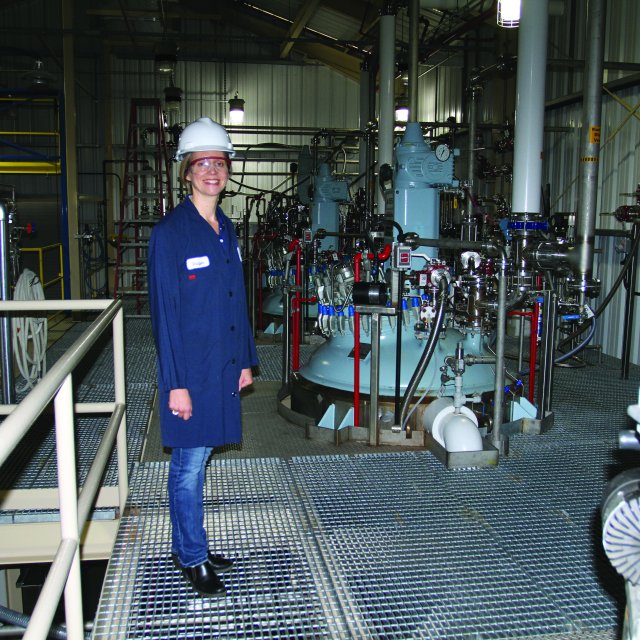
Joy Stringer’s (96) love for chemistry began after taking organic chemistry with Dr. Heasley her sophomore year at PLNU. After a December graduation, she began her employment with AMPAC Fine Chemicals in January 1997, and she hasn’t looked back since.
Stringer was originally hired as a research and development chemist with AMPAC, a company that manufactures active chemical ingredients for customers in the pharmaceutical industry. At first, Stringer spent most of her time in the lab, developing chemical routes for compounds.
Once a specific route was determined and approved, she worked in chemical plants to make sure the process was introduced smoothly and everyone was trained adequately.
Over time, Stringer learned how to interact with customers and became increasingly interested in the company’s business operations. This interest eventually culminated in a transition to executive director of project management for AMPAC. Still considered part of the R&D department, Stringer’s group develops manufacturing routes for chemical compounds.
“We make a compound in hopes that it moves on to clinical trials,” explained Stringer. “Once it is approved for testing, you have to have a route to manufacture the compound for trials. And if it passes and is approved to go on the market, you have to have a process to get it there as well. In both cases, the compounds must be manufactured in larger quantities than are required in the lab, so we come up with a plan to scale up the synthesis.”
Stringer describes her current position as an interface between the technical and business sides of the company. While this role allows her to delve into building customer relationships and negotiating contracts, she is still very present in the lab, where she manages a team of chemists and oversees plans for ingredient manufacturing.
Now 17 years into her employment with AMPAC, Stringer is content with her work and grateful for the opportunities she had at PLNU that helped get her there.
“PLNU is unique in the research opportunities they offer to undergraduate science students,” she said. “The research I was involved with strengthened my lab skills, gave me confidence in my abilities, and prepared me better than a lot of people coming out of other schools.”

The Viewpoint
PLNU's university publication, the Viewpoint, seeks to contribute relevant and vital stories that grapple with life's profound questions from a uniquely Christian perspective. Through features, profiles, and news updates, the Viewpoint highlights stories of university alumni, staff, faculty, and students who are pursuing who they are called to be.